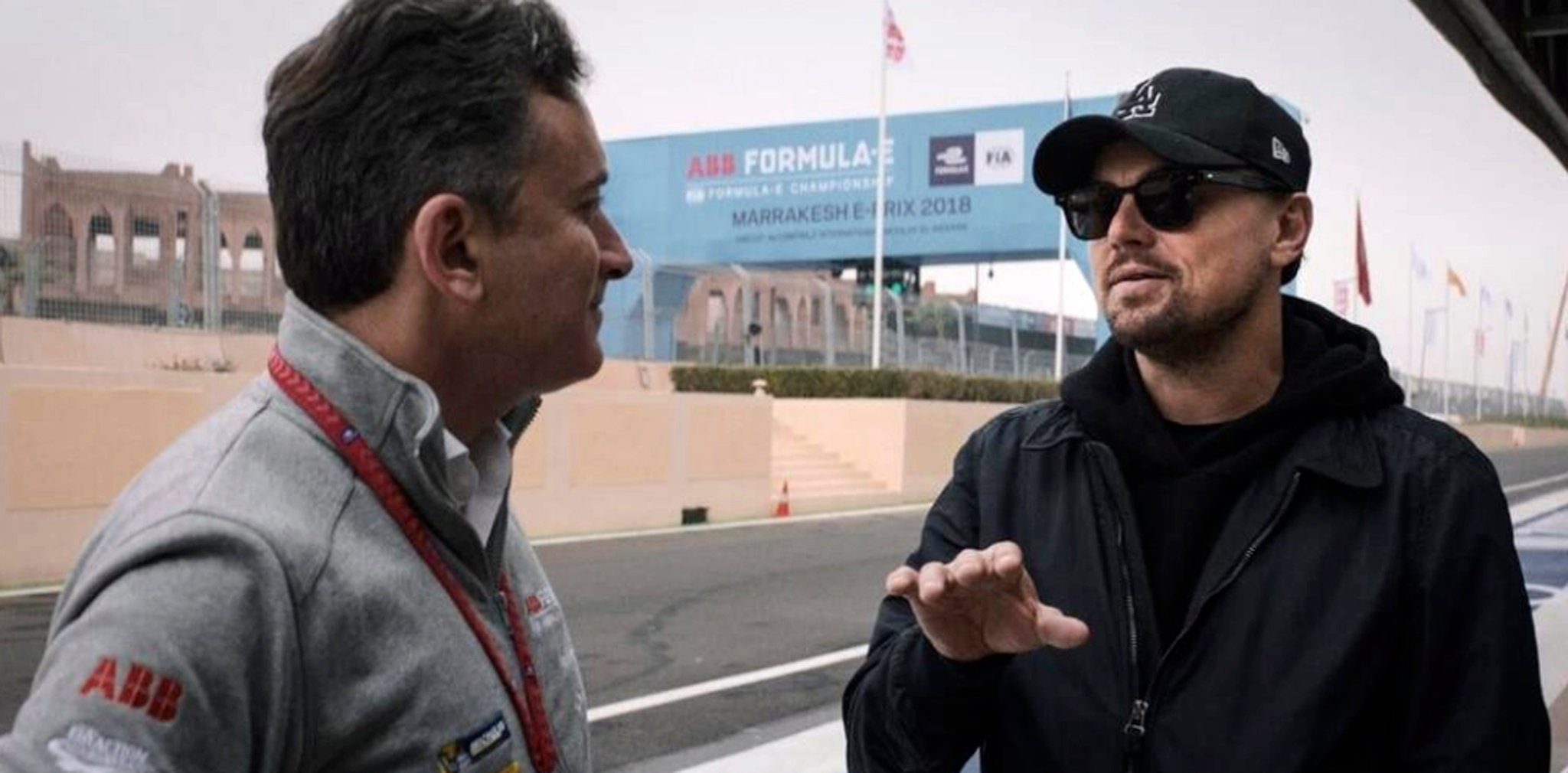And We Go Green
(USA, 99 min.)
Dir. Fisher Stevens, Malcolm Venville
Programme: TIFF Docs (World Premiere)
“It’s lights out and away we go!” is one line that audiences might hear at the beginning of a Formula 1 race. Formula E, the environmentally friendly alternative to the fossil fuel polluting reality of Formula 1, takes the eco-friendly opening line even further. Each race begins with the ecstatic proclamation, “And we go green!”
The energetic line appears throughout And We Go Green and each iteration is more triumphant than the last. The doc takes audiences on a spin through the world of technological innovation and sustainable cars to demonstrate how saving the planet and entertaining the masses go hand in hand. Alejandro Agag, the founder of Formula E, describes his shrewd practice of getting ahead of the curve on the environmentally unfriendly Formula 1 racing, which inspires legions of fans, but sets a poor example for sustainable practices by wasting huge amounts of fossil fuels and emitting needless carbon into the air purely for the sake of sport.
Agag notes how automobiles, and car racing especially, are at the forefront of innovation. Drivers, sponsors, and audiences want faster, slicker, safer cars, so engineers devise lighter autos and cars that give the most horsepower for their buck. Agag asks why shouldn’t auto-racing consider the inevitable future faced by all industries that deal with vehicles. Fossil fuels will run dry and race car aficionados need to find an alternative to save their sport before the world burns like rubber on the track. It’s not a matter of “if” but “when.” Agag spearheads the sophisticated initiative of developing electric race cars and sets a standard for the auto industry and auto racing in general by proving that there’s nothing lost in entertainment value or viability by going green.
Director Fisher Stevens, who previously did the Leonardo DiCaprio eco doc Before the Flood and won an Oscar for producing The Cove, teams up with dramatic filmmaker Malcolm Venville (Henry’s Crime) to explore how industries can shift towards green practices while retaining their core essences. Drawing top-notch work from their pit crew of cinematographers, editors, and sound designers, Stevens and Venville create a film that is urgent and demands the big screen experience. It thrills, but provokes the questions that the best of documentaries aim to ask as we strive to make a better world.
One could argue that the environmental angle actually improves the sport, too, as Fisher and Venville convey in accessible terms how these high-powered vehicles navigate the limitations of electric cars. It more of an intellectual sport than before. The drivers must negotiate “range anxiety” while on the track, since the batteries of e-cars have limited lifespan, as do all electronics, which means that drivers need to anticipate and calculate their energy usage. They can’t simply slam the pedal to the metal and fuel up. They need to switch to a second car in the early years of Formula E, thus timing their change within the car’s battery life or be left stranded on the course and out of luck. As the film zips through the rivalries and skill sets of drivers like France’s Jean-Éric Verne (aka “JEV), Englishman Sam Bird, and Brazilian Nelson Piquet, Jr., it suggests that there’s both an art and a science to being the best in the league.
The film works brilliantly as a sports doc as the drivers study their cars and the technology behind them. And We Go Green follows the drivers throughout the season, capturing some photo finishes and pulse-pumping races. There are major upsets and there are heartbreaks, and the drama of the film comes from understanding that the rules have changed: men and their big engines are a pair from a bygone generation. The change isn’t widely embraced, though, despite attracting top-tier drivers and setting a standard for other industries to follow. Agag and his crew are perceived as tree-hugging bleeding hearts in the face of the old-school fossil fuel mentality—a point the founder humorously shares when he meets up with the filmmakers shortly after having been accosted by a fossil fuel loving Formula 1 fan who bashed his face with a champagne flute as punishment for inspiring change.
And We Go Green also excels as environmental film by interrogating the slow road to change. If auto-racing can adopt green technology, the auto industry in general should follow tradition by adopting the practices of the race world to consumer culture. The film also enjoys a cameo from Stevens’ collaborator Leonardo DiCaprio, who visits a racetrack as one of the many celebrities who lend their endorsements to the practice. DiCaprio has learned a thing or two since his previous outings in the eco-doc world and proves to a helpful guide as his inquisitiveness allows the film to explain in layman’s terms the “aquafuel” and heavy science behind the battery-powered cars.
And We Go Green is one of the most entertainingly effective environmental docs I’ve seen. The film is an exceptionally well-produced feat that gets its message across by providing audiences with an exhilarating adrenaline rush. Even without the usual vroom-vroom of Formula 1 racing, there’s enough action on screen to get viewers’ motors revving as the environmentally friendly cars speed silently around the tracks.
Visit the POV TIFF Hub for more coverage from this year’s festival!













